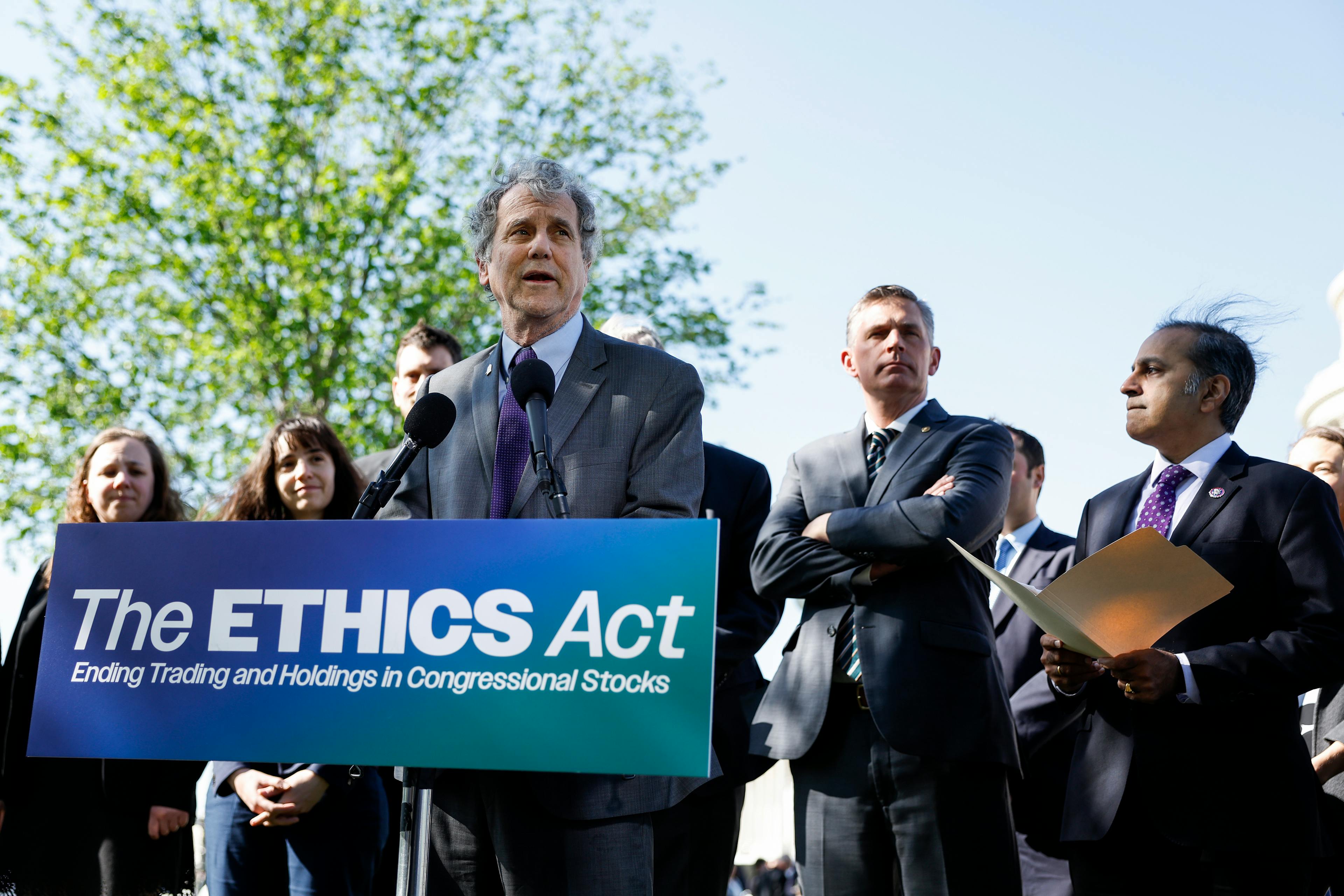When Congress sells a stock short, it makes money
The infuriating yet unsurprising results of a new academic study
Don’t sell yourself short. Great advice in life.
When a member of Congress sells something short, they’re probably on to something.
Also great advice, according to a new paper from a pair of well-respected law and finance professors that shines additional light on the lunacy of continuing to permit stock trading by elected officials in Congress.
The analysis, from Berkeley Law’s Frank Partnoy and Peter Molk, of the College of Law at the University of Florida, uses a newly available dataset — based upon required disclosures by members of Congress in the aftermath of trading scandals over a decade ago — to gauge whether the success of their trades could indicate these public officials are basing their trade on access to better information than the public at large.
The upshot? It seems pretty likely when they’re betting that the price of a stock will fall, a technique known as “shorting.” The authors write:
Based on a new comprehensive dataset of trades by members of Congress, that negative trading not only is common, but also is associated with positive abnormal financial returns. Simply put, members of Congress’s bets on stock price drops make money...The evidence is consistent with a story that some members of Congress make money on, and are guided by material nonpublic information in, their negative trades but not their positive ones.
This stands to reason, as elected officials are regularly privy to nonpublic information concerning companies, such as regulatory actions or potential legislative changes that could influence how much money companies make. (On the other hand, these academics don’t find that Congressmen and women do much better than average when they are betting on a rise in prices.)
Despite the depressing regularity of dopey, and bipartisan, Congressional trading scandals — remember Buffalo area Congressman Chris Collins? North Carolina Senator Richard Burr? New Jersey’s Tom Malinowski? Or the members who thought it was a good idea to trade bank stocks in the midst of the 2023 regional banking crisis? — the practice continues to the allowed.
The STOCK Act was passed in 2012, after SEC investigations into the trading activity of Tennessee Republican Bill Frist, the former majority leader of the Senate, as well as a high profile “60 Minutes” examination of trading from prominent members of congress such as then House Speaker John Boehner (R-OH) and his predecessor as speaker, California Democrat Nancy Pelosi, among others. (I would note that a former colleague, the Wall Street Journal’s Jason Zweig, was well ahead of the curve on issues with Congressional trading, spotlighting it in his column way back in 2010.)
But the STOCK Act is largely a disclosure-based law that requires reporting after selling shares and, essentially, clarifies that insider trading laws also extend to members of Congress who trade on nonpublic information. There has been little sign that the law has deterred members’ trading activity that poses conflicts of interest.
But hope springs eternal. Last April, a bipartisan Congressional group unveiled the ETHICS (Ending Trading and Holdings in Congressional Stocks) Act, that aims to “prohibit members of Congress, their spouses and dependent children from abusing their positions for personal financial gain by owning or trading securities, commodities, or futures.” And just this month, the Senate introduced its version of the bill.
"The truth is Congress should not be here to make a buck. Congress should be here to serve the American people,” Sen. Josh Hawley, of Missouri, told reporters, upon the introduction of the bill.
Seems simple enough.
